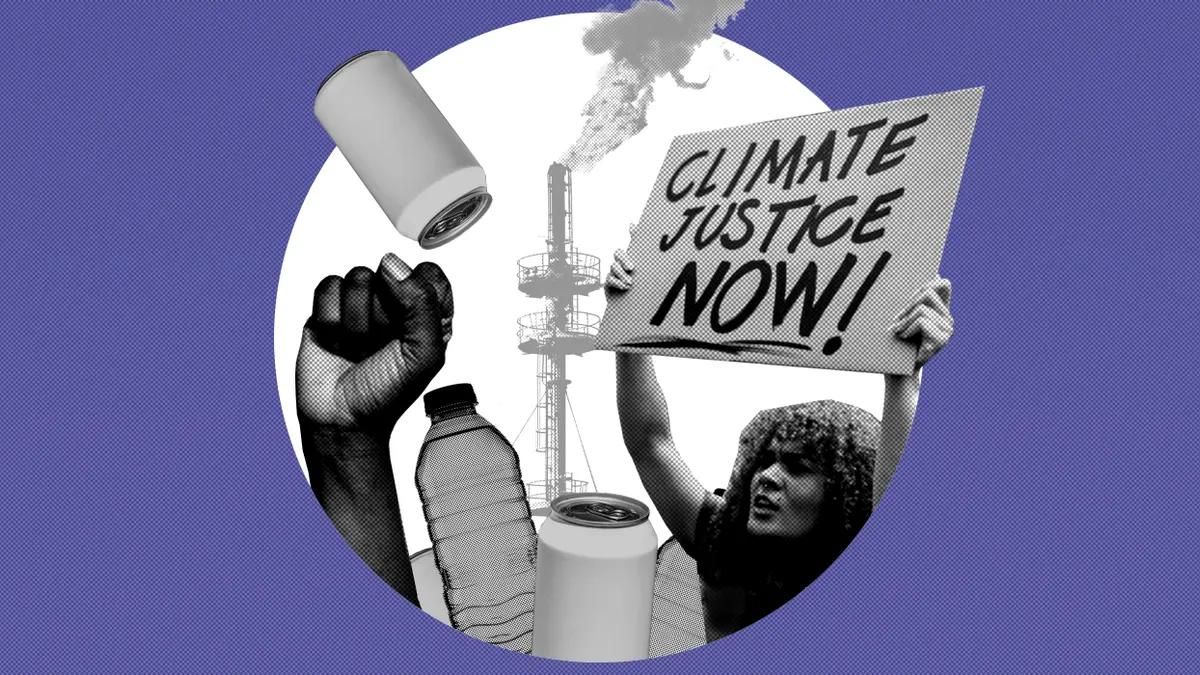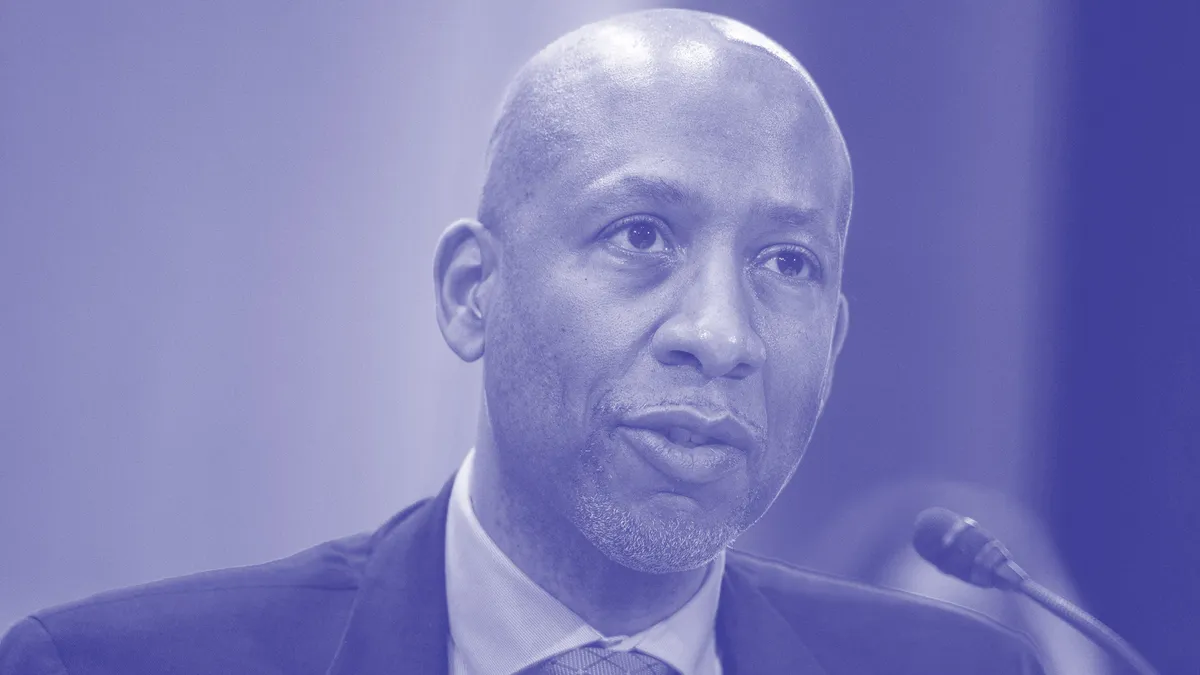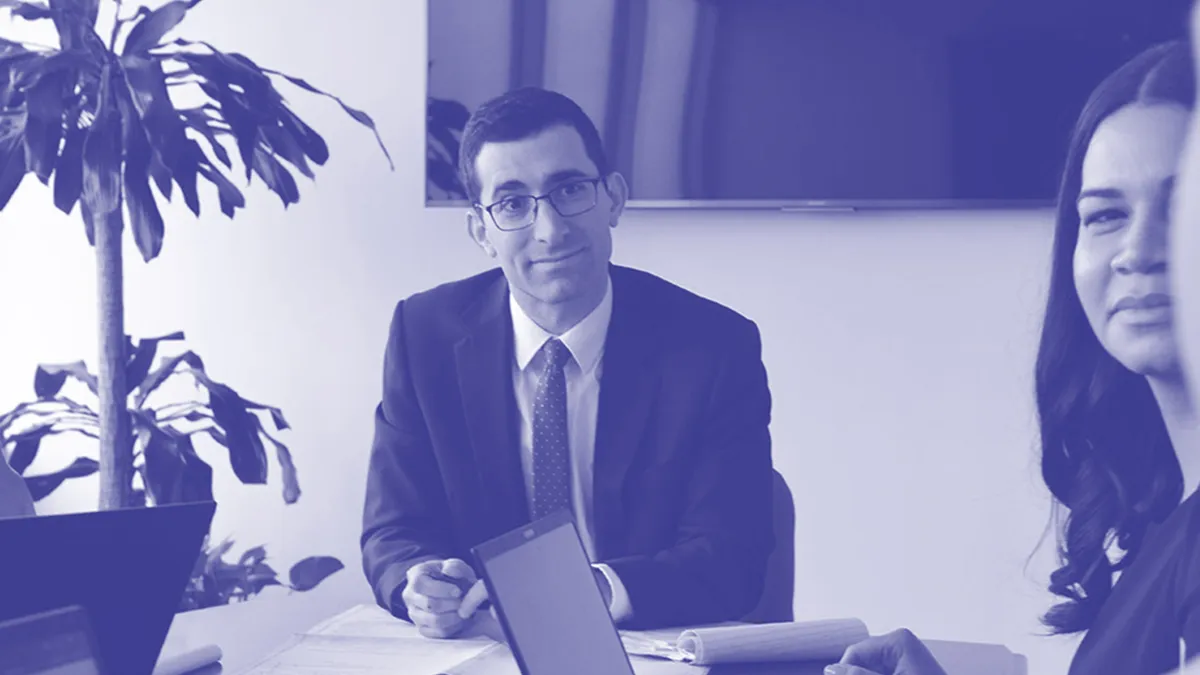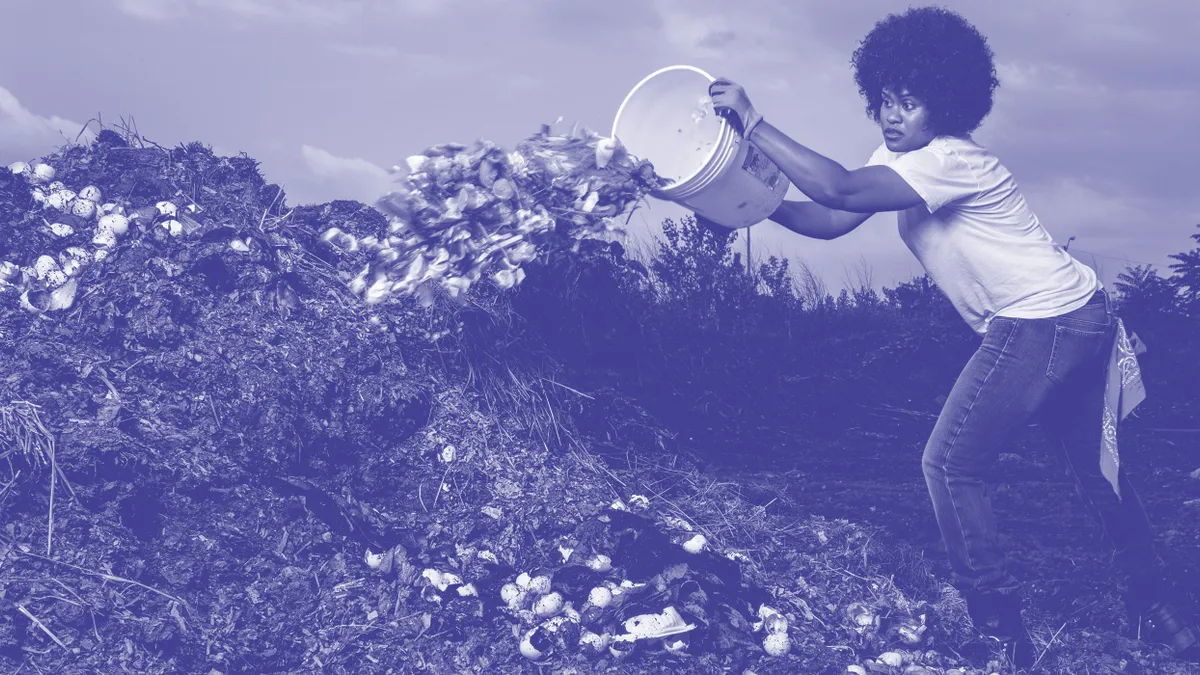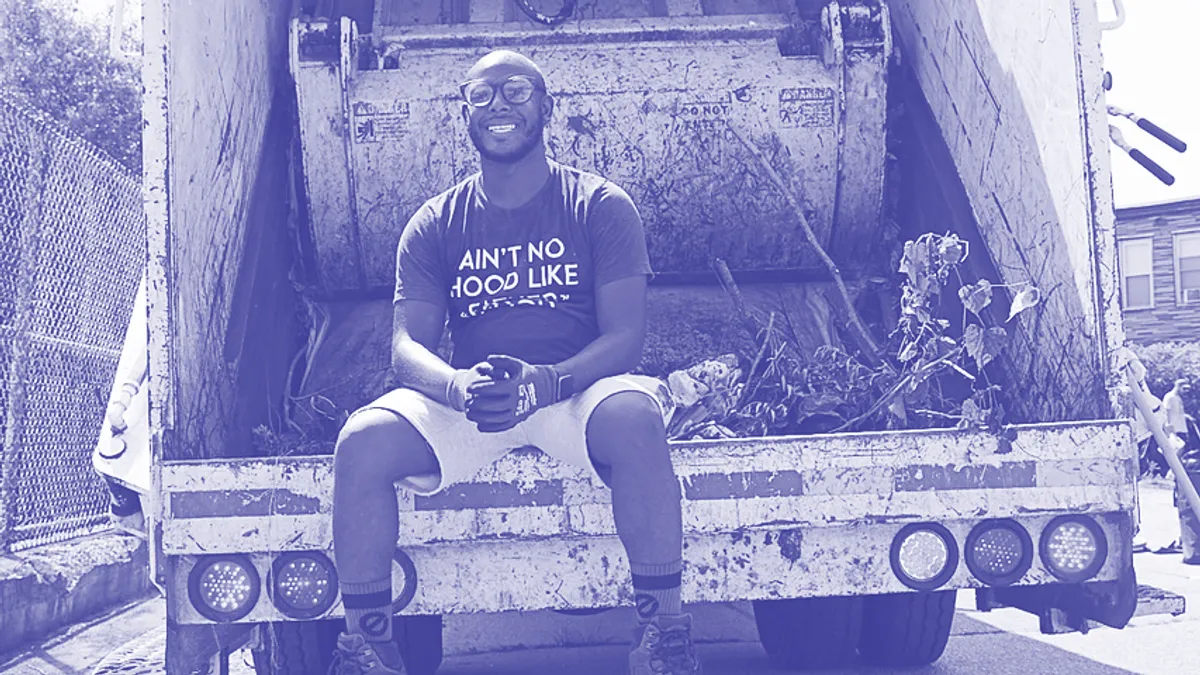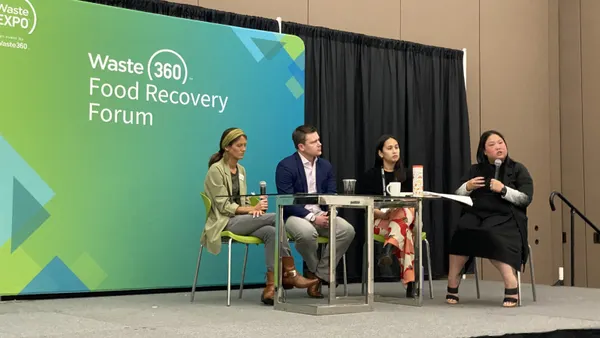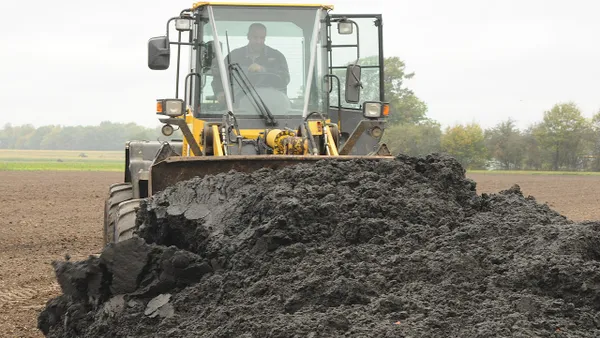As more nonprofits, municipalities, public agencies and businesses begin planning for and investing in circular economy projects, where does social and environmental justice fit into the vision?
A team of University of Maine researchers asked that question in a recent study, “Just By Design,” where they documented language used in about two dozen circular economy reports from 2018 through 2020 to get a better understanding of how the plans discussed — or omitted — concepts of justice. They also conducted focus groups with stakeholders whose work involves the circular design of products, packaging or infrastructure.
Researchers found that many of the reports, which include reports from recycling industry groups as well as municipalities, nonprofits and businesses, argue the circular economy can address social or environmental justice issues through job creation or other economic solutions. However, many do not acknowledge longstanding racial, economic and social inequalities in U.S. society that may enable or perpetuate those issues. In one example, researchers highlighted how many reports tout job growth in its circular economy plans, but very few of the reports addressed whether such jobs would pay a living wage, described how jobs would be available to diverse groups of people, or acknowledge training or outreach needed to make such jobs safer and more accessible for those in overburdened communities.
These researchers argue that words matter in shaping how sustainability experts, including the waste and recycling industries, build programs and initiatives in the future. “These reports, white papers, and briefs that articulate visions of circularity do more than just describe the world, they also help to create it,” they said in the study.
Cindy Isenhour, associate professor of anthropology and climate change, and Michael Haedicke, associate professor of sociology, are two of the eight researchers who contributed to the study. They spoke with Waste Dive about how sustainability experts can broaden their views and help avoid further entrenching inequities into new circular economy plans through better stakeholder engagement.
This interview has been edited for length and clarity.
What was the starting point for your research? Why focus specifically on these recent circular economy reports and the language they use to talk about social and environmental justice?
CINDY ISENHOUR: I was asked to co-edit a special issue of Local Environment, which is the journal where this paper came out. The whole topic of the issue was to focus on social justice in the circular economy. There was quite a lot of research coming out — all these empirical case studies, as well as literature reviews — that were really critical of the circular economy concept for not paying adequate attention [to social justice]. There are situations where policy with the best intentions and assumptions were enacted, but ended up being exclusionary or reproducing [larger] inequalities. Scholars were thinking, “oh, gosh, this really is an oversight. How do we start to pay more systemic research attention to this issue?”
[Brieanne Berry, the study’s lead researcher] and I are part of the [NSF Convergence Accelerator program], which is an ambitious attempt to pull together 23 different scholars from five different institutions to try to converge in our science around the circular economy. It’s really difficult to get industrial oncologists and material scientists and chemists and anthropologists to collaborate and to kind of agree on things like, what are the main goals of the circular economy?
As we were trying to do that, we saw in our interactions with folks that the dominant approach still is very technocratic and very based in technological innovation. So we thought, let's take a look at the U.S. practice and policy and see how we're doing. We wanted to get a baseline measure of how people are thinking about issues of equity and justice.
MICHAEL HAEDICKE: I'm a sociologist, and a lot of my research has concerned alternative food systems, meaning the production and distribution side rather than the disposal side. One of the things that really struck me as we began working on this paper was the way social justice was talked about within the circular economy literature really mirrored some of the ways that we saw justice being talked about in alternative food literature. My own interests really came about through seeing the convergence between those two communities. Some of the alternative food work does engage with these ideas of circularity, but really present are some of the themes that we pulled out in the paper, sort of the focus on neoliberal framings of justice, as opposed to more critical framings distributed for the procedural framings of justice [the idea that everyone who has a stake in the outcomes of a decision-making process is represented].
You mention the concept of a “neoliberal” approach to justice, this sort of personal responsibility framing that says injustices can be fixed through individual actions and through the free market. What does that mean in the context of these circular economy reports, and why do you feel these framings are problematic?
HAEDICKE: The idea of neoliberal justice is this conviction or this assumption that markets institutionally are the best way to address social inequalities and to create a more fair and a more just society. ‘If you give everybody access to markets, social problems will be solved’ is kind of the idea there. As you saw in the paper, we were concerned about that, really critical about that.
When we read through the literature and reports about the circular economy, we saw lots of emphasis on job creation as an end in itself, and not a lot of exploration of why in certain areas or in certain populations those jobs were lacking in the first place. We saw a lot of emphasis on the creation of entrepreneurial opportunities, but not an interrogation or investigation of who might be positioned to take advantage of those opportunities, and how circular economy arrangements could be organized in such a way as to provide those opportunities to historically disadvantaged or historically marginalized social groups.
There wasn't a deep exploration of other sorts of arrangements and forces that might be shaping those social economies that might need to be grappled with or challenged as a way of addressing those social inequalities.
ISENHOUR: When we read through these projects multiple times, and some of the key words that always came up were “opportunity” and “access.” The basic idea of neoliberal forms of justice is that they're just conditions with mutual benefit, right? So we'll make money and you'll get jobs and we give you that opportunity. But as Michael said, there was no real attention to the politics of that or the source of joblessness in the first place, or whether any of this is sustainable long-term.
The reports you assessed for this study are often being used as important informational or policy-building tools for the industry, but report-writing is just one part of building circular economy strategies. What impact do you think these reports really have on how circular economy projects are built and executed?
HAEDICKE: The idea was that these reports not only reflect the things that people are talking about in relation to the circular economy in these different discourse communities, but they also contribute to creating that reality, too. If there are certain dominant ways of saying things, it becomes more difficult to think of alternative framings of justice, right? The more we hear certain ways of thinking or talking about justice, the more they become second nature, and they actually end up shaping forms that the circular economy takes and the way people think about the benefits of the economy and potential with the circular economy.
[The reports we looked at] include the nonprofit world, the business and finance world. There's also local and regional governments. We looked at the patterns of engagement with these different forms of justice that appeared in each of those communities. And what we found is, number one, the reports coming from the nonprofit world had more efforts to engage with justice overall. But across all of those communities I mentioned, neoliberal forms of justice were the dominant modality of talking about justice. No matter who was writing, no matter what the audience was, that framing was really front and center and dominant in the reports.
ISENHOUR: I recognize the possibility that part of this framing might be a response to funding agencies. There aren't a whole lot of funding [sources] for circular economy initiatives yet, but where they do exist, they also tend to be focused on this more neoliberal conceptualization [such as job creation or entrepreneurial incubators].
I think that, to some extent, these organizations that are working to advance the circular economy do have a responsibility to also help the funders recognize the importance [of how to talk about justice]. We are hoping that this work reaches some of the people who authored these reports.
Beyond reviewing circular economy reports, you also conducted focus groups with stakeholders to get their perspectives. What did those conversations look like, and how did it contribute to your understanding of how people are working on sustainability outside of these published reports?
ISENHOUR: First, we gave them a list of core principles of the circular economy using terms we identified through the literature, including ‘justice’ and ‘equity.’ We asked them to rank the terms [in order of importance] and interestingly, overall, those terms ranked fairly low compared to the other ones. However, there was a small group of people that put those first … generally those people that have been in this [justice] conversation the longest.
We also asked them open-ended questions such as, ‘to what extent do you see discussions about equity and justice emerging?’ And so we got some really rich conversations from the focus groups… It was really the impetus of the title of our paper, “Just By Design,” because we had two different perspectives that stood out to us right away. Some [stakeholders] were saying, ‘you must implement the circular economy first, and then the social justice and the issues of equity will emerge.’ If you build it, they will come, essentially. And then you have other people saying, ‘Oh, no, that's so backwards. You have to intentionally design these systems with equity and justice in mind from the beginning, they have to be just by design.’
Talking about racial justice, social justice, equity, environmental justice — these are huge topics that are not going to get solved in one report, but I'm curious what you think these circular economy organizations can learn from this and what their next steps can be, in terms of their framing and discussions.
ISENHOUR: At the most basic level, the concept of procedural justice is super important in sustainability planning. The best intentions are often there, but I think we sometimes are blind to our own bias and how our perspective might be different than others’.
My number one takeaway would be just to encourage folks, if you're interested in [circular economy] planning, especially at the city level, is to talk to the people who are going to be potentially affected, or who may have some really useful perspectives and creative ideas to contribute to the discussion. In a lot of places in the circular economy, great things are already happening. The sad thing is that we oftentimes design over them and basically erase them in the process. If we can build upon and leverage the exciting things that are already happening at the local level, by including people who are already engaged in that work, that's really important.
I also think that there's quite a bit of work to do from research teams like ours, to translate more specific examples of equity considerations for audiences and specific examples of how equity might be involved at different stages of the circular economy. I do hope that our research community can start to outline those more clearly and provide them in a digestible format. I do also think that there are some good examples that are emerging in local practice for how equity has been considered. One is in Oregon, which is so far ahead of most of us in terms of their consideration of equity. Another is the Circular Charlotte report.
HAEDICKE: It’s so important to broaden the conversation about the circular economy. I think that’s a struggle. Folks involved in environmental justice have been having that conversation for 30-plus years and know that in order to really move in the direction of addressing some of these social inequalities, you need to actually include groups of people who are affected by these inequalities and organizations that are deliberately focused on these inequalities. That conversation has been going on in environmentalism, it's been going on in the food movement. It's been going on in all sorts of places, and I think that's something that we would like to see happen in discussions of the circular economy as well.
Right now, a lot of what we observed is that the [circular economy] discussion is going on amongst some municipalities, some well-financed NGOs, nonprofit organizations, venture capitalists and businesses. This is sort of the community that's talking about the circular economy. The people who aren't at the table or part of these conversations are groups that represent low-income communities, people-of-color-led organizations. They need to be part of the conversation to move the circular economy in that direction of greater equity and justice and thinking about equity and justice in a more robust and more critical way.
It’s a little bit problematic when people say ‘oh, you know, we need a big table, and we've invited people to come in [but] they just didn't show up. They must not really be interested in these conversations,’ without actually doing that sort of self reflection of: how are we talking about these things?



